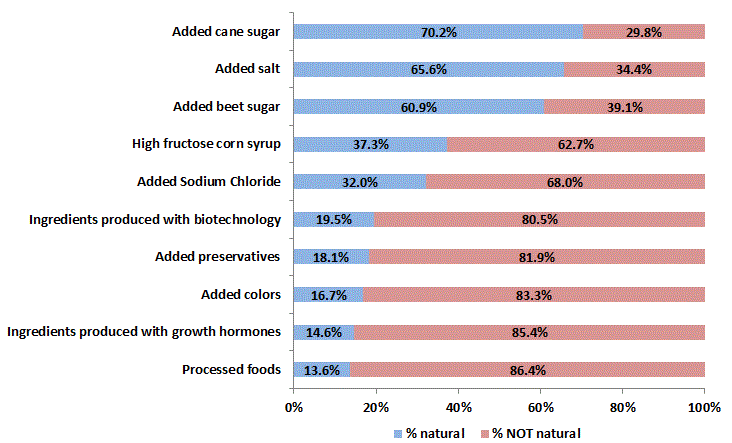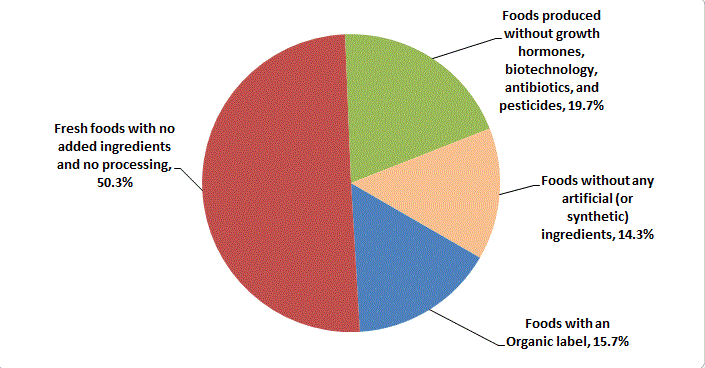At little over a month ago, I discussed some of the ongoing legal challenges that are swirling around "natural" claims on foods. One of the big challenges is that the word "natural" is nebulous and is vaguely defined by regulators.
I thought I'd try to shed a little light on the subject by making use of the survey project I just started and asking consumers what they think the word means. In June, I added two questions to the survey. The first question listed 10 statements and individuals had to place them in a box that said "I believe foods containing this ingredient are natural" or one that said "I DO NOT believe foods containing this ingredient are natural." The order of items was randomized across respondents (sample size is 1,004, demographically weighted to match the US population, sampling error is about +/- 3%).
The results indicate that most people think added cane sugar, salt, at beet sugar are "natural" but HFCS, sodium chloride, and biotechnology are not. Interestingly, salt and Sodium Chloride are the same thing! Yet, using the technical/scientific name reduces the % perceiving salt as natural from 65.6% to 32%!
Processed foods are seen as least natural. "Processed food" is also a vague term. Is cheese a processed food?
The second question I asked was the following, "Which of the following best fits your definition of 'natural food'?" I gave four options, and here is the % of respondents choosing each option.
The majority of respondents thought that the best definition (at least among the four I included) was, "fresh foods with no added ingredients and no processing."
I suspect many of the foods sitting on a grocery store shelf that use the word "natural" do not meet this definition consumers found most descriptive.

